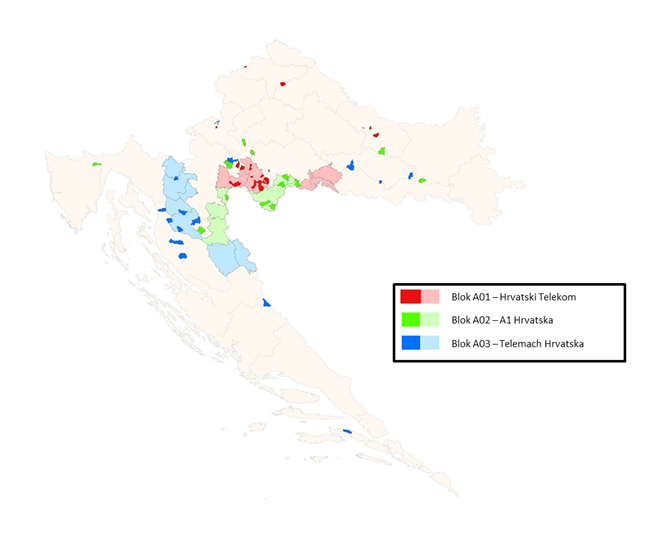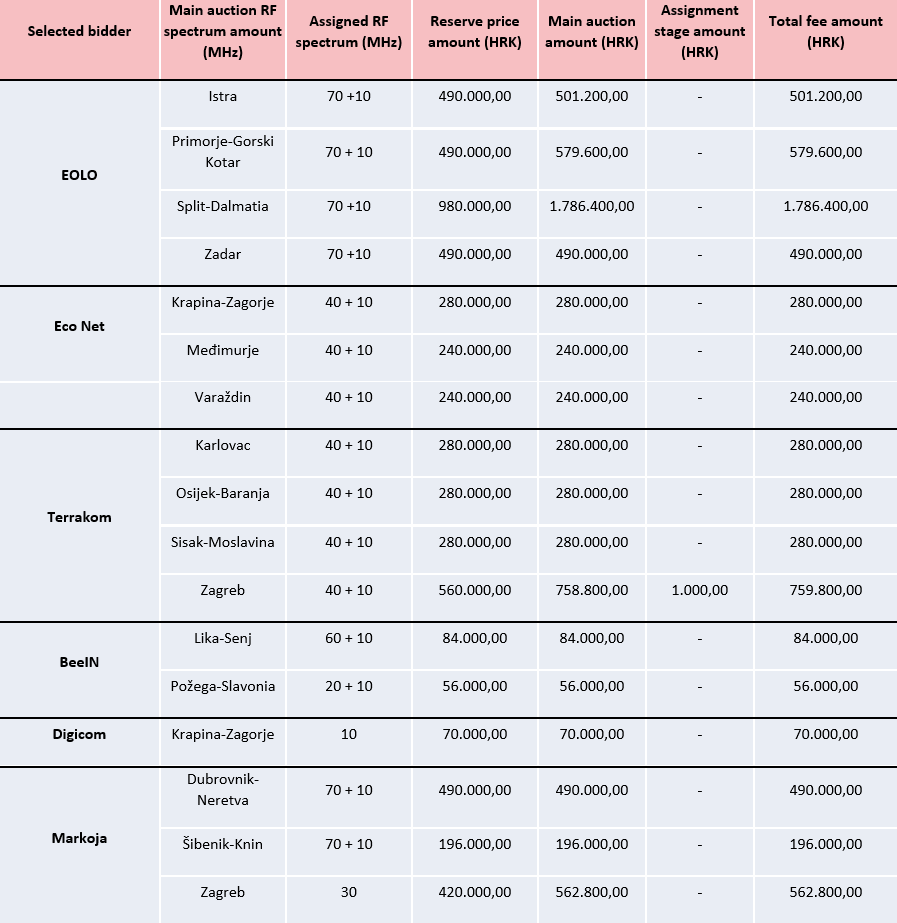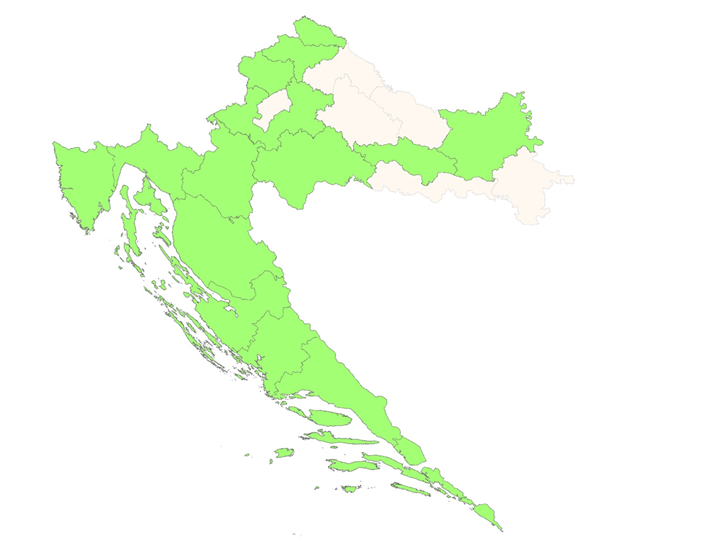HAKOM awarded radio frequency spectrum for the fifth generation mobile communications
ZAGREB, 12 August 2021 - The Croatian Regulatory Authority for Network Industries (HAKOM) has awarded radio frequency spectrum in the 700 MHz (758-788 / 703-733 MHz), 3600 MHz (3400-3800 MHz) and 26 GHz frequency bands (26, 5-27,5 GHz) for the 5th generation mobile communications networks.
The bidding process started on July 12, 2021, and the decision on selection of the most favourable bidders and issuing of licenses was made on August 12, 2021. The bidding process included the main auction phase and the frequency block assignment phase. In the main stage of the auction procedure through one or more rounds, bidders submitted bids for the right to use one or more frequency blocks. At the end of the main auction phase, which determined the amount of radio frequency spectrum to be assigned to each bidder, an assignment phase was held, which determined the final distribution of radio frequency spectrum among bidders, i.e. the exact position of each bidder's frequency blocks within a certain frequency band. Licences have been issued for 15 years for all areas, except in the case of Međimurje and Varaždin counties, where there are already issued licences for technologies other than 5G valid until 2023, and for these areas new licences are exceptionally issued for 13 years. At the end of the period of validity of the license, the validity may be extended for a maximum of five years, as set out in EU rules.
The results of the bidding in the public auction procedure for the 700 MHz frequency band at the national level are listed in the following table:

Total amount of fee for the use of RF spectrum that was achieved in public auction for frequency band 700 MHz is 139.989.998,00 HRK.
For individual frequency blocks (A01, A02 and A03) coverage obligations have been determined:
- 5G coverage area with a certain signal level in order to ensure a sufficient quality of service in the outdoor.
- Individual transport routes coverage with a certain 5G signal level.
- Areas not covered by the appropriate signal level (possible 4G or 5G signal coverage).
- Coverage of the areas that have not been covered by the appropriate signal level (possible coverage by 4G or 5G signal).

The results of the auction for the 3600 MHz frequency band at the national level are shown in the table:

The results of the auction for the 26 GHz frequency band at the national level are shown in the table:

The 3600 MHz band was also awarded at the regional (county) level to create business opportunities for smaller, regional operators, as well as to encourage a variety of services and give the end users a choice. The outcome of the auction is shown in the following table:

The frequency block 3400-3410 MHz was awarded to the selected bidder for the frequency block 3410-3420 MHz free of charge.
The following figure shows the counties where radio spectrum was allocated in the 3600 MHz public auction process at regional level:

The total amount of fees for the use of RF spectrum obtained at the public auction is HRK 358.995.433,00. The fees collected from the auction are paid in full to the State budget.
In addition, the deployment of the fifth generation (5G) networks is one of the key factors for making broadband available to all households, reliable communication with low delays (latency) and connecting a large number of devices. 5G is expected to create the preconditions, not only for new services in mobile communications, but also for new services and applications in other industries such as automotive, healthcare, agriculture, tourism, education, media, etc. These networks are conceptually a completely new ecosystem that involves not only stakeholders in the electronic communications market but also other markets.
It is also important to point out that upon expiration of the currently valid licences granted to operators, HAKOM will consider launching a new public auction procedure in order to use these frequency bands for further 5G deployment. The licences currently granted for the 800 MHz, 900 MHz, 1800 MHz, 2100 MHz and 2600 MHz frequency bands expire in 2024 and HAKOM plans to conduct a new public auction procedure for the allocation of rights of use of these frequency bands in 2022-2023. HAKOM will define the exact range of frequency blocks when launching the new procedure for granting rights of use for RF spectrum.
For additional information please contact:
Croatian Regulatory Authority for Network Industries (HAKOM)
- Roberta Frangeša-Mihanovića 9 Street
- 10110 Zagreb, Croatia
- Tel. + 385 (0) 1 700 70 07
- Fax + 385 (0)1 700 70 70
Media inquiries can be submitted online using HAKOM’s official website: www.hakom.hr
About Hakom
HAKOM - Croatian Regulatory Authority for Network Industries – ensures preconditions for a fair market competition, stable growth and environment for innovations in the electronic communications and postal services market. HAKOM protects users’ interests and the possibility of choice among various communications and postal services at affordable prices, defines sustainable competitive conditions for operators and service providers under fair conditions for return on investment, and provides support to economic growth, public services and the quality of life in the Republic of Croatia by using modern technologies. HAKOM’ strategic goals are: to promote regulation of the electronic communications and postal services market, to support growth of investments and innovations in the electronic communications and postal services market, to provide efficient use of limited resources, to accelerate the growth of broadband products and services, to provide affordable offers of communications and postal services, to provide protection and informing of users, to build an efficient and comprehensive information system, to define and implement efficient processes, and to acquire multi-disciplinary expertise in market regulation.